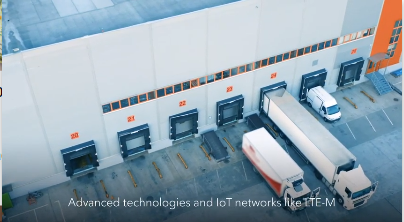Ensure you find the right solution for your needs by asking questions about reliability, flexibility, deployment and support.

In today’s connected world, advancing technology and the Internet of Things (IoT) are transforming virtually every industry for the better. For businesses that rely on their vehicles, whether they have five supply trucks, a crew of loaders, or a fleet of 18-wheelers, upgrading fleet management is key to gaining traction over their competition.
By equipping businesses with essential data and reporting, IoT fleet solutions help improve efficiency for all kinds of operations. Through connected sensors and systems, managers are revolutionizing their approach to route optimization, fuel monitoring and proactive maintenance—reducing downtime and staying ahead of evolving regulations.
Ready for full visibility into your fleet operations? Here are some important questions to ask when looking for an IoT solution to more effectively manage your company’s vehicles.
1. How is this solution going to increase reliability and decrease downtime (both today and down the road)?
If vehicles are important to your business, every minute of downtime costs you money. That’s why implementing a reliable method for tracking and reporting on your vehicles and machinery is vital.
An IoT-based fleet management solution uses connected sensors to report on a range of factors such as weather, road conditions, vehicle location and status. This extended visibility into fleet operations empowers managers to adjust and optimize usage in real-time, react to changing conditions and avoid costly downtime.
1a. Will this solution help my vehicles stay compliant with regulatory requirements?
Compliance is another key factor to consider. June 12, 2021 is Transport Canada’s deadline for certain commercial vehicles to have an on-board Electronic Logging Device (ELD) installed. To keep your vehicles in operation, you need to stay ahead of changing regulations like these and others. Look for a solution that offers comprehensive reporting and analytics tools that can all be managed from a single platform.
And remember, this vital data needs to be kept safe. Consider a solution that ensures secure, off-site storage that keeps your company’s data in Canada while keeping privacy and security paramount.
2. What business benefits do I expect from my ideal fleet solution?
Every business has unique needs, but with the right solution you can expect three outcomes: better operations and efficiency, reduced costs and improved safety.
Real-time reporting, showing the exact location and utilization of vehicles, gives managers the ability to reduce downtime and get more from under-used assets. For example, if an excavator completes a job ahead of schedule and is sitting idle, it can quickly be redeployed to another job site where it’s needed. This not only results in better efficiency but also enhances customer service.
But real-time reporting is not the only benefit managers should expect. Having a single platform to track and report factors such as driver behaviour, fuel consumption and engine performance can help managers mitigate fines, accidents and costly maintenance while simplifying the associated administration and management fees.
3. What are my options for deployment? Does this solution have the flexibility I’ll need as I grow?
The size, complexity and goals of your fleet will help determine which features to integrate first and in which parts of your business to deploy them. Regardless of where you start, easy deployment and customer support should be ‘must-haves’ when considering your options.
Look for solution-providers able to satisfy both your current and future requirements. For example, cross-country deployment may not be initially necessary, but it could become important as your business grows. Always look for support from experienced professionals—the key to fast, effective implementation at the outset and as you expand your operations.
4. What kind of customer support does the solution offer during and after implementation?
When launching a technology solution across your business, professional support is the key to success. Leading providers will take a holistic approach to your fleet management solution, which should include working to understand your company’s unique needs. Before and during implementation, you should expect to be supported with expertise, employee training and troubleshooting.
After implementation, your business should continue to receive assistance including technical support available 24 hours a day, 7 days a week.
Asking these questions will help flush out the right fleet management solution for your vehicles, ensuring your investment will provide the returns your business needs while keeping your fleet, employees, and cargo safe and compliant.
